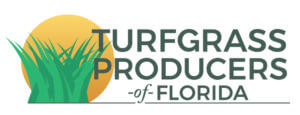
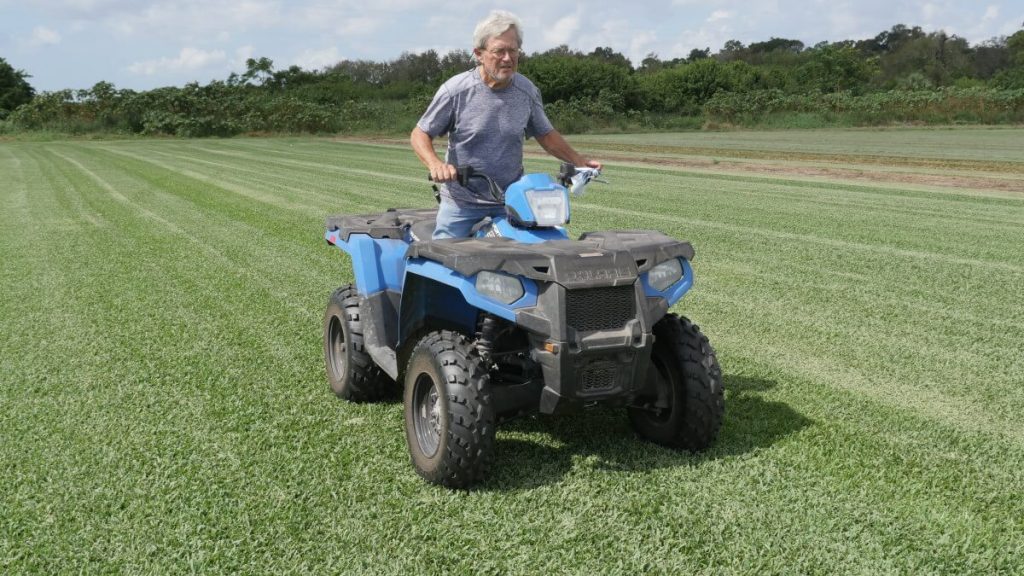
CitraBlue® St. Augustine’s Certification Process – An Interview with Dr. Phil Busey
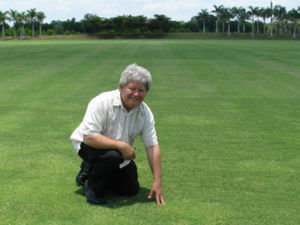 The University of Florida bred and developed CitraBlue® St. Augustine and is requiring growers to go through a certification program for planting stock. Certification requires significant time and inspection costs to ensure a grass’s genetic purity and consistency. Turfgrass certification in Florida is mostly limited to fine grasses such as bermudagrass used on golf courses and sports fields. The intent of requiring certification for CitraBlue planting stock in addition to grasses for golf courses and sports fields is to make sure that in conforms to the highest quality of genetic consistency. Dr. Phil Busey, University of Florida Professor Emeritus, is the Florida crop inspector for the Southern Seed Crop Inspection Association. Dr. Busey discusses what he does, and the processes growers have to go through for certification.
The University of Florida bred and developed CitraBlue® St. Augustine and is requiring growers to go through a certification program for planting stock. Certification requires significant time and inspection costs to ensure a grass’s genetic purity and consistency. Turfgrass certification in Florida is mostly limited to fine grasses such as bermudagrass used on golf courses and sports fields. The intent of requiring certification for CitraBlue planting stock in addition to grasses for golf courses and sports fields is to make sure that in conforms to the highest quality of genetic consistency. Dr. Phil Busey, University of Florida Professor Emeritus, is the Florida crop inspector for the Southern Seed Crop Inspection Association. Dr. Busey discusses what he does, and the processes growers have to go through for certification.
Dr. Busey, tell me about Southern Seed and your role as the crop inspector.
Southern Seed Certification Association, Inc., is a non-profit corporation mandated by the Florida Department of Agriculture and Consumer Services to inspect and approve sod and other forms of turf in Florida. Growers participate voluntarily, but in the case of CitraBlue® St. Augustine and some other licensed grasses, participation is mandatory.
I inspect each sod field three times per year during the growing season and approve or reject fields based on the presence or absence of genetic off-types or noxious weeds. I drive back and forth each field in a four-wheeler.
The successive passes close enough for me to see every square foot of sod. If there is any significant problem, such as common bermudagrass, I hop off, place a flag in the ground, and report the problem and its specific GPS location to both the turfgrass producer and to the association. It is important to catch noxious weeds and off-type contamination before turfgrass is expanded to another field.
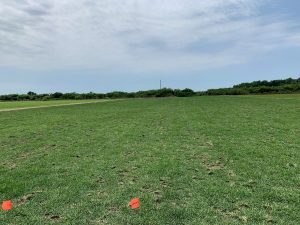
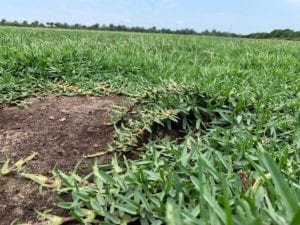
What are the advantages of having a grass included in the certification process?
Fundamentally, it comes down to accountability. This is feasible for CitraBlue St. Augustine, which is a clonal, vegetatively propagated turfgrass. Every piece of a clone should be the same genetically. There have been problems with past grasses, such as Tifway Bermuda, used on golf courses, where after several years of growing and expanding, they became mixed up with other varieties of the same species. Contamination in the early stages can be very hard to spot. Even a small amount of contamination can spread quickly before it is caught. A regular program of repeated inspections of planting stock, with specific standards of field planting, should maintain CitraBlue planting stock in its original intended genetic form when it is shipped to customers.
What happens for CitraBlue to go through this process?
Growers must plant in clean fields that have been fumigated or have been kept fallow (barren and free of plants) and inspected multiple times before planting. Growers must obtain planting stock from an approved source that is no more than three stages from the original breeding stock from the University of Florida. Growers must apply for planting and their applications include a fumigation invoice (unless the field was fallowed and subject to multiple inspections before planting), then fields must go through three inspections and be approved by the Southern Seed Certification Association before harvest is allowed for replanting.
What are the results of this and why are we spending so much time on it?
The results will be that customers who use CitraBlue St. Augustinegrass will have an extra level of quality control done at every stage of expanding CitraBlue planting stock.
Do you have any additional comments on certification?
Turfgrass producers of CitraBlue St. Augustinegrass do their own inspection as well and are responsible for providing a quality product. By having a third party association inspect fields as well, there is an extra level of security that the consumer is getting what they paid for. The final planted field would not normally be certified, but all the stages before that step would be.
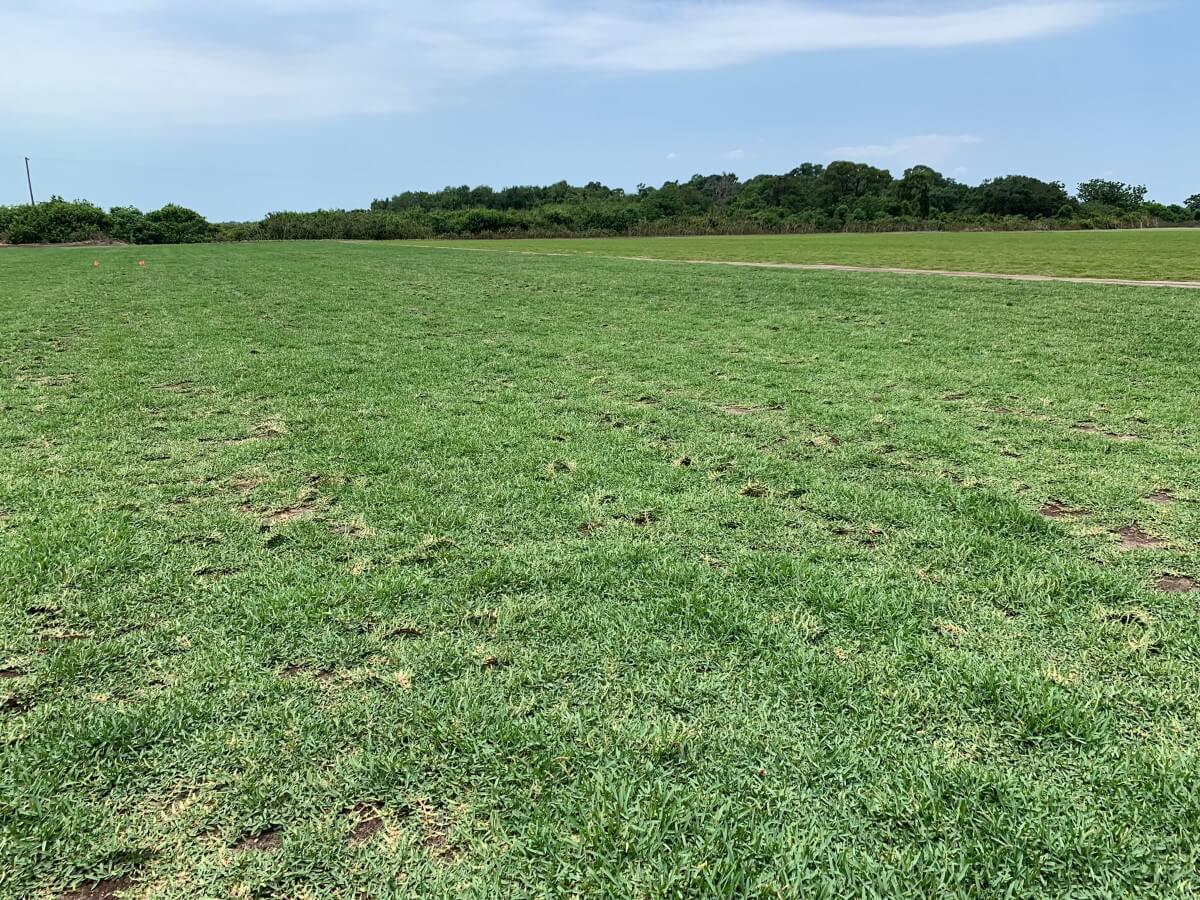
Learn more about CitraBlue St. Augustine here, or check out some of our previous articles for more information such as CitraBlue St. Augustine Acreage Map, which contains our current availability and projected 2020 acreage, or CitraBlue St. Augustine’s Research & Breeding Process.
CitraBlue® St. Augustine grass was developed by the University of Florida’s turfgrass breeding program under a sponsored Research Service Agreement with the Turfgrass Producers of Florida, Inc. (TPF). CitraBlue St. Augustine is exclusively licensed to TPF by Florida Foundation Seed Producers, Inc., a direct support organization of the University of Florida. CitraBlue is marketed by Sod Solutions, Inc. and is now available throughout Florida.

